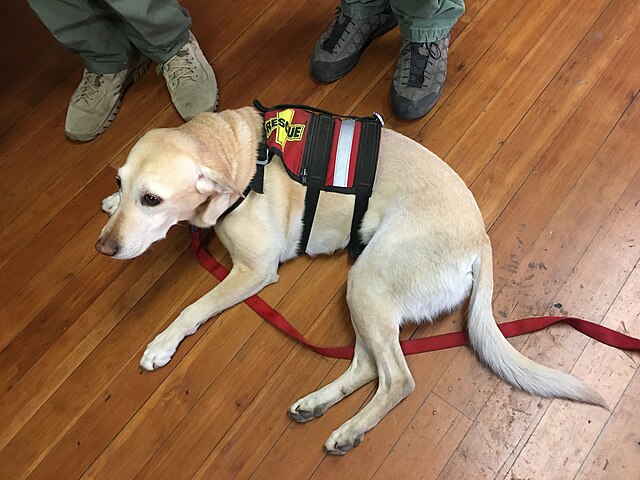The Dogs of the OKC Bombing
On their way out the door to visit the Federal Building, Aunt Faye stopped to show Grandma Cela the memorial she set up for their late mother. As Faye waved her hand toward the pictures and momentoes on the mantle, a loud boom sounded, and the house shook.
Faye paused, slowly lowering her hand. “Do ya suppose Ma doesn’t like it?”
I can’t remember how they found out that the building they were going to visit was bombed. It was only minutes away, so whether or not Ma liked the memorial, taking that time to admire it might have saved them from joining her. Also, thanks to my grandma visiting Oklahoma, my cousin who worked at the building took the day off. Little decisions and delays. Big consequences.
I do remember the phone lines were jammed. I kept calling while Grandpa fretted, desperate to hear Grandma’s voice. When I finally got through, Grandma didn’t say hello. She answered the phone with, “We’re all okay!” I wonder how many callers got through before us. She was being efficient, getting straight to it and clearing the line for the next call.
More than anything though, I remember the dogs. That was the strongest impression my grandma came back with, and it became a guiding metaphor for life.
Rescue dogs were brought in to search for bodies. Unfortunately, there were many to find because the bomber intentionally waited until after everyone would have arrived for the day, including the children in the on-site daycare. The dogs would find one victim after another, but not alive. Now, imagine the reactions of the humans involved in the rescue efforts. Each time a body was found, especially that of a child, what did the humans feel? How did they express that feeling?
After awhile, the dogs stopped. They couldn’t continue. They were discouraged each time they found a body, and their posture suggested depression, shame, exhaustion.

Realizing what was happening, the humans started taking turns hiding under some rubble so the dogs could “find” them. When the dogs discovered the living humans, people cheered, and they praised the dogs for doing a good job. With the boost of finding somebody alive often enough, of having happy successes, plus humans remembering to express gratitude even when finding the dead, the dogs were able to persevere in their important work.
What can we learn from this?
One obvious thing is that feelings – including empathy – are experienced by human and non-human animals alike.
The other is that we can find ourselves grinding to a stop when we only hear or experience the negative. It’s worse when it’s the same horror repeated over and over again. In order to sustain, we need to express and receive gratitude. We need to celebrate the wins. We need to pace ourselves, and take breaks. Play music, take a walk, hydrate. Self-care in its many forms is vital for us to persevere in doing our important work.
This applies to all aspects of life. Parenting. Supervising teams. Curating and sharing information (hello social media overwhelm). Finding the right balance is a personal thing, but hopefully taking a moment to ponder the above story can create awareness, which is the first step.


